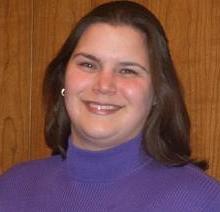Using Science Fiction to Educate

(c) 2012 Marvel Studios
In the last 25 years in the U.S., the share of college degrees earned by science majors has dropped considerably, while many other disciplines have seen their shares grow. For more, see this article from the Chronicle of Higher Education.
Jordi Solbes, a physicist and professor of science education at the University of Valencia in Spain, noticed a related dip in Europe and is trying to identify ways to capture more students' attention in high school. He's looking at teens' fascination with science-fiction movies. Solbes analyzed 31 textbooks used in Spanish schools and was surprised to discover that only nine of the textbooks used movies as a teaching example, even though the majority of the students surveyed could describe the science featured in popular science-fiction films.
"In our study, we are seeing that science fiction can be one of these resources that make science more attractive," Solbes wrote in an e-mail to Inside Science. "Students like science fiction especially in films; however, science fiction has also given an image of science and scientists that is distorted."
There are many science-fiction movies that have already been made that provide both correct and inaccurate examples of science and both positive and negative characterizations of scientists that could be used in the classroom.
"It can be interesting to show film clips that are inaccurate such as explosion sounds in space," said Solbes. "This makes students aware of them and be able to criticize them."
Of course Hollywood's goal when making a movie is to entertain and not necessarily to educate, but the National Academy of Sciences has created a unique program called the Science and Entertainment Exchange to connect the brilliant and creative minds of Hollywood and science.
One example of the success of this collaboration was in the 2011 movie "Thor." In the comic book, the character of Jane Foster was a nurse, but during discussions with the film's director, producer, writer and group of science consultants, the idea of Jane Foster as an astrophysicist was born. Even Natalie Portman, the Oscar-award winning actress who portrayed Jane Foster in the movie, recognized the potential impact playing a female scientist could have on girls watching the film.
One important point is that for this example to have an impact, girls need to watch the movie.
"Superheroes aren't for everyone," said James Kakalios, a physicist at the University of Minnesota who has also served as a science consultant for the 2009 film "Watchmen." "One approach [to get students interested in science] is to show them how science is important and relevant to the lifestyle that we have today because most students wouldn't want to give up their phones, so I use that."
While science-fiction movies maybe a foot in the door to get students' attention, showing them how science and engineering impacts their daily life may swing the door wide open to a whole new world of possibilities.
More Information:
- Science Fiction Is Not Put to Good Use in Teaching, Spanish Study Finds
- La ciencia ficción está desaprovechada en la enseñanza published in the journal Enseñanza de las ciencias

